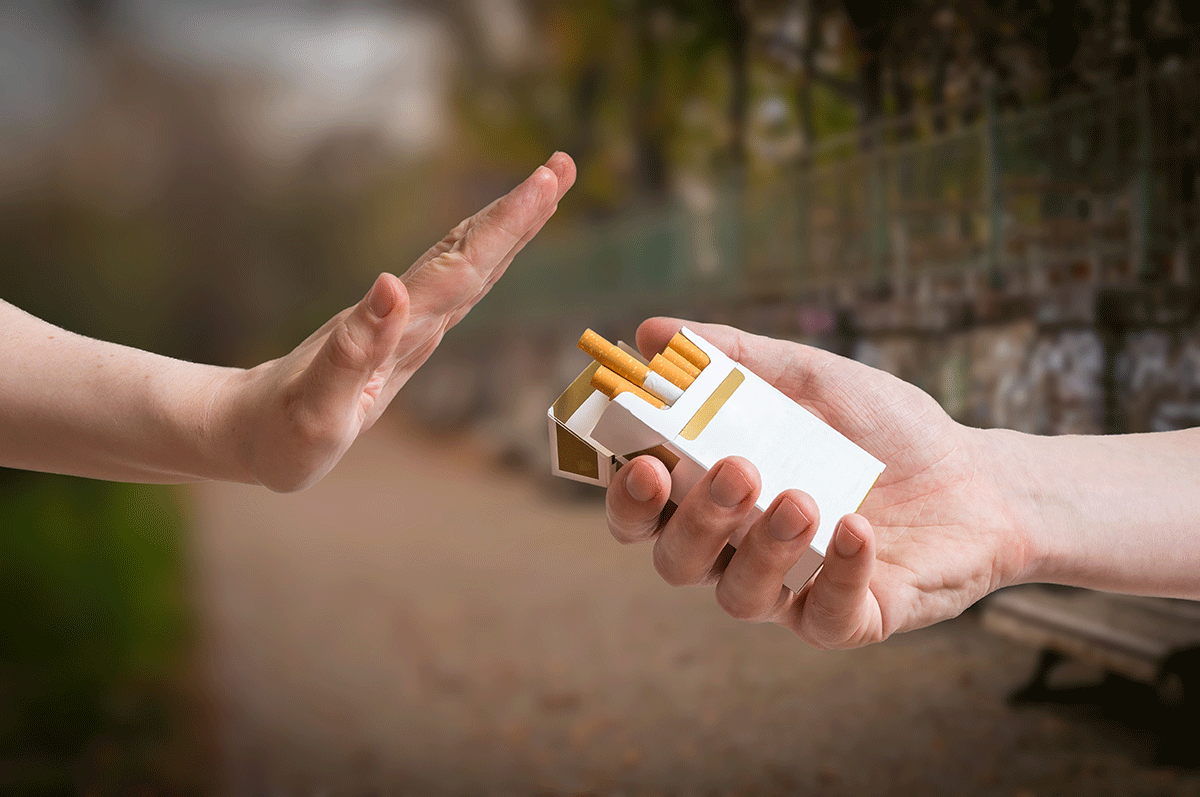Nicotine is second only to alcohol in terms of the number of people who are addicted to it. About 24 million people over the age of 12 in the U.S. report that they are dealing with nicotine addiction. People often report that tobacco is one of the hardest addictions to kick. If you have wanted to stop smoking or using tobacco and have been unable to do so, consider a tobacco and nicotine addiction treatment program to support your decision to quit once and for all.
What happens when you quit smoking? How long do nicotine withdrawal symptoms last? What is the best way to end cigarette cravings? To have these and all your other questions about nicotine answered by a professional, reach out to Pennsylvania Adult & Teen Challenge (PAATC) today. We can provide you with accurate information about nicotine addiction and how to quit smoking safely. Call us at 844.442.8673 or complete this easy online form.
Nicotine Addiction
Nicotine is the chemical in tobacco that people who smoke, chew, dip, or vape become addicted to. It interacts directly with the adrenal system, resulting in spikes of adrenaline that can help you focus and feel energized. However, it can create a jittery, anxious feeling.
Nicotine also affects the parts of the brain that are stimulated by many other addictive substances, like alcohol, cocaine, and heroin. Nicotine triggers the release of the neurotransmitter called dopamine. Dopamine is directly connected to:
- The ability to concentrate
- Planning and strategizing
- Feeling good
- The ability to feel interested in things
- Motivation
After enough nicotine has been introduced to the bloodstream, stimulating both adrenals and brain receptors, people become physically dependent on it. They crave it when they go too long without a cigarette. They don’t feel good until they can access tobacco, specifically nicotine. That feeling is the beginning of withdrawal.
What Happens When You Quit Smoking?
Nicotine withdrawal symptoms often take people by surprise. They don’t think of their tobacco use as being a serious addiction as other people might have to drugs like meth, Oxy, or alcohol. The severity of the withdrawal process is enough that simply white-knuckling it can be extremely challenging, and many people try again and again without success.
In a tobacco and nicotine addiction treatment program, what happens when you quit smoking can be made far easier, and you can be supported both physically and psychologically through the process. Some nicotine withdrawal symptoms include:
- Restlessness
- Increased hunger
- Anxiety
- Depression
- Unprovoked anger
- Inability to focus
- Nausea
- Headaches
- Insomnia
- Strong cravings
In a professional setting, your withdrawal can be managed with medications to mitigate the symptoms listed above as your body flushes out all the nicotine and other toxins related to tobacco addiction.
PAATC Can Provide Nicotine Addiction Treatment
At PAATC, you will receive individual support through individual therapy and group support opportunities. Tobacco, as with any drug, may provide any number of perceived benefits. Whether you enjoy the feeling of increased focus, like having something to do with your hands, or simply feel imprisoned by a habit you developed before you realized what was happening—you can survive and thrive without nicotine. In fact, once you get control over your addiction, you are likely to feel healthier of mind and body than you were while using.
When you quit smoking and using nicotine, you will be at lower risk for:
- Cancers like bladder, lung, stomach, pancreas, and liver
- Diabetes
- Cardiovascular disease
- Respiratory ailments, including susceptibility to infection as well as emphysema
Stopping tobacco use can:
- Lower anxiety, depression, and stress levels
- Improve mood and quality of life
- Replace anti-depressants; for many people quitting tobacco is all it takes for their depression to lift
Use this online form or call 844.442.8673 today to learn more about the benefits of leaving nicotine behind and how PAATC can help you get through withdrawal and begin a healthy, tobacco-free life.







